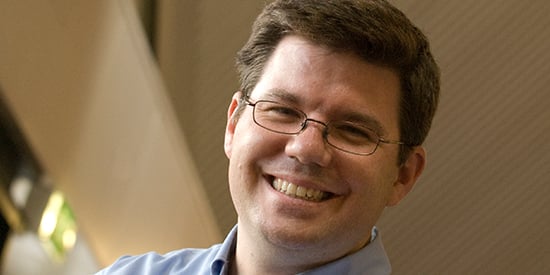Deakin's approach to engineering education features at international congress
Deakin news
Associate Professor Bernard Rolfe from Deakin University’s School of Engineering was on an expert panel discussing engineering education at the recent FISITA World Automotive Congress in Chennai, India.
As part of the Educating the Mobility Engineers of Tomorrow (EMET) session, Associate Professor Rolfe discussed how Deakin re-engineered its engineering program, overhauling its curriculum to introduce a new style of teaching called Project-Orientated Design-Based Learning or PODBL.
‘Over the past four years Deakin Engineering has introduced PODBL into its curriculum,’ Associate Professor Rolfe explains.
‘PODBL is a teaching and learning approach that is based on engineering design activities that are driven by a project within the unit. It encourages independent learning where students learn fundamental knowledge through designing applications that are related to a project that has a defined deliverable, which is presented to them by industry partners or academic staff.
‘The PODBL model has had a positive effect on student content knowledge and the development of skills such as collaboration, critical thinking, creativity, innovation, and problem solving. The project based learning has also enabled a greater amount of interaction between engineering disciplines, as projects need to have multi-skilled teams to devise solutions.’
As part of his presentation, Associate Professor Rolfe gave an overview of Deakin’s Centre for Advanced Design in Engineering Training (CADET) facility and why it was purpose built to support the PODBL teaching style.
FISITA is the international network for automotive engineers, representing over 210,000 engineers in 37 countries. Associate Professor Rolfe is currently a member of FISITA’s Academic Advisory Board and was a significant contributor to the Mobility Engineer 2030 FISITA White Paper which was released at the Congress.
‘The Mobility Engineer 2030 FISITA White Paper aims to create discussion around the required skill set for engineers in 2030,’ Associate Professor Rolfe says.
‘FISITA’s Academic Advisory Board, of which I am a member, have been discussing the academic and vocational needs of mobility engineers with FISITA’s Industry Advisory Board. FISITA has been a great body to facilitate such discussions to ensure we are training the right type of mobility engineers to be employed in the future.’
The FISITA World Automotive Congress was held from 2 – 5 October 2018.
Share this story

